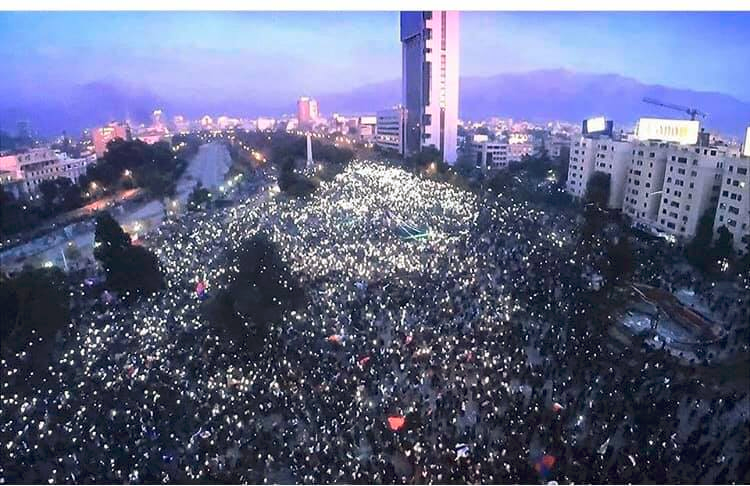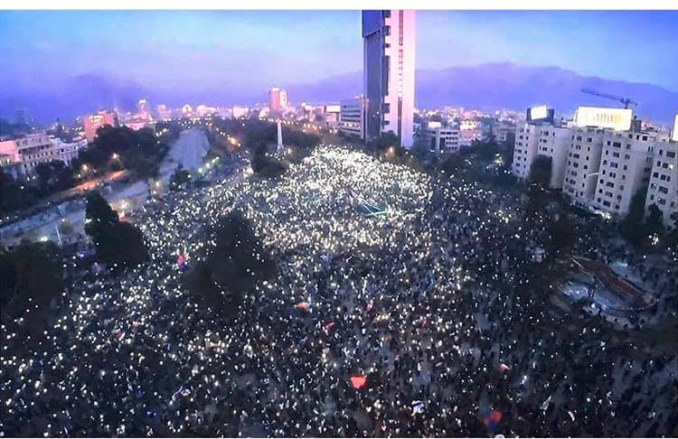

Santiago, Nov. 8. (Photo: Telesur)


Mass protest, Santiago, Nov. 8. (Photo: Telesur)
Beginning in mid-October, and continuing every Friday since then, hundreds of thousands of Chileans have been demonstrating against government neoliberal policies that have transformed their country into one of the most economically unequal in Latin America. The protests, initiated by youth over increases in transit fares, have spread from Santiago to other areas despite heavy government repression — reports claim at least 42 dead and 121 missing at the hands of police in the first two weeks.
These demonstrations are the largest since a fascist coup, led by General Augusto Pinochet in 1973 with U.S. backing, crushed the progressive government of President Salvador Allende and opened up a reign of terror. What followed was massive privatization of the country’s wealth, even affecting access to water. After Pinochet’s retirement in 1990, a supposed democratic government was restored, but the country remains in the grip of a small wealthy ruling class that relies on the military and police to maintain power over an increasingly impoverished working class.
This statement was recently issued by over 30 groups. On Friday, March 28, Dr. Helyeh…
By Jeri Hilderley I long for peace and ease as stress and anxiety overtake me.…
Los siguientes son extractos de la declaración del Gobierno de Nicaragua del 9 de abril…
The following are excerpts from the statement of the Nicaraguan government on April 9, 2025,…
The following is a statement from the organization Solidarity with Iran (SI) regarding the current…
By Olmedo Beluche Beluche is a Panamanian Marxist, author and political leader. This article was…